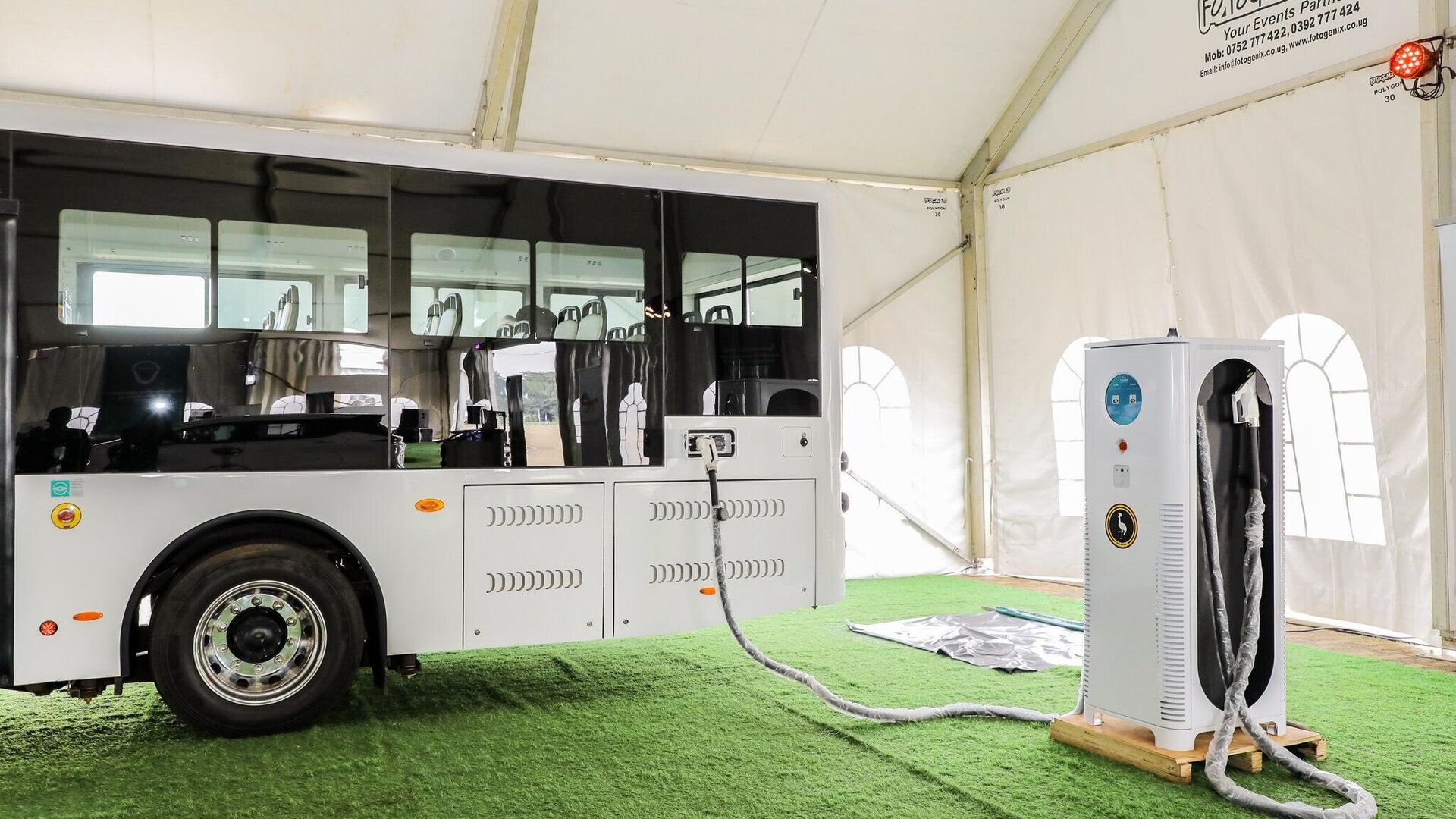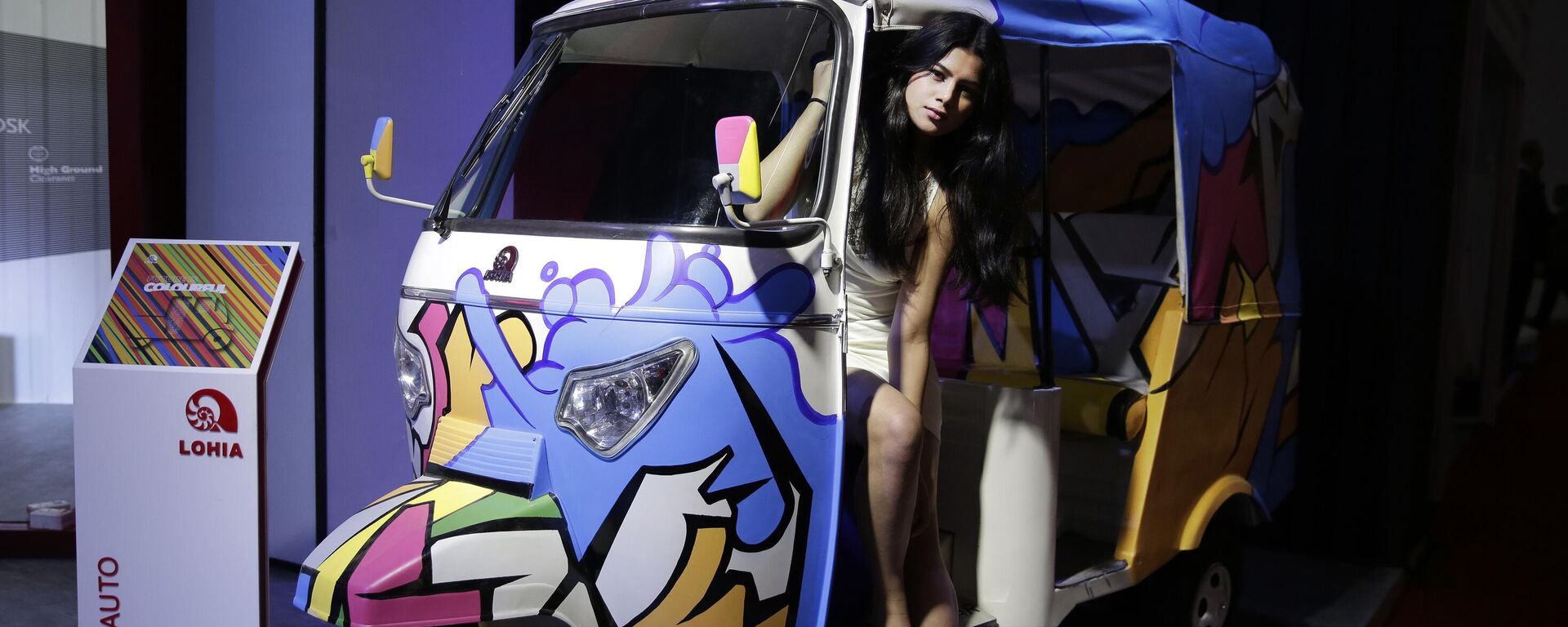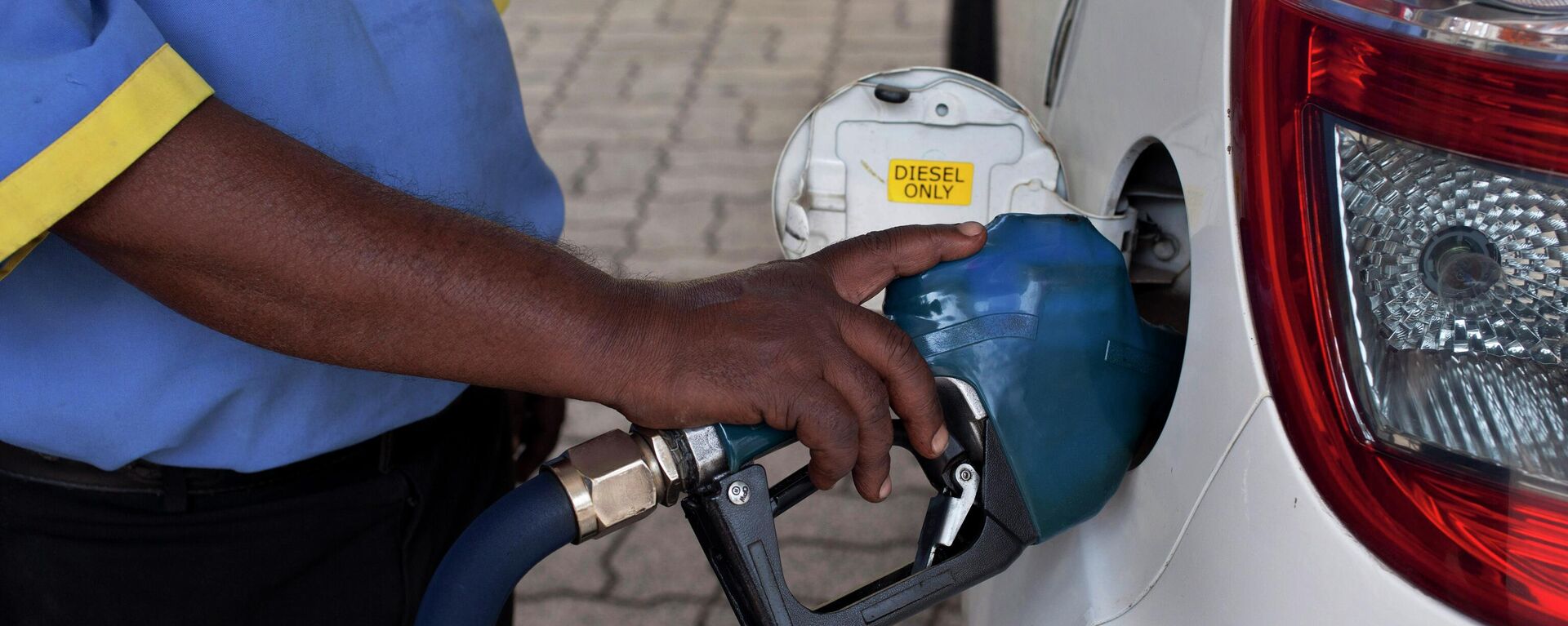https://sputniknews.in/20230701/india-has-the-advantage-over-other-countries-in-ev-manufacturing-expert-2762930.html
India Has The Advantage Over Other Countries in EV Manufacturing: Expert
India Has The Advantage Over Other Countries in EV Manufacturing: Expert
Sputnik India
According to media reports, the electric vehicle (EV) market in India is likely to be worth $114Bln by 2029 at CAGR of 66.25 percent. The market was valued... 01.07.2023, Sputnik India
2023-07-01T08:00+0530
2023-07-01T08:00+0530
2023-07-01T08:00+0530
sputnik opinion
india
electric vehicles
economics
new delhi
climate change
environment
business
https://cdn1.img.sputniknews.in/img/07e7/06/1c/2722071_0:107:2048:1259_1920x0_80_0_0_525c312fdabb02dc1fa7cc6fd259f69f.jpg
The electric vehicle market in India is rocketing. According to various media reports, the sale of EVs crossed the one-million mark last year and is expected to reach 17 million units by 2030.With an upward trend in the market, most of the carmakers in the country have started to produce some of their best-selling internal combustion engine (ICE) models in electric versions.While talking to Sputnik about the EV market in India and what has caused the phenomenal growth, Ashwani Mahajan, the co-convenor of economic advocacy group Swadeshi Jagran Manch (SJM), said that although the market was still young in India, the Indian government wisely decided not to lower tariffs on ready-made cars from elsewhere in the world so that it could incentivise producers in India which has so far yielded good results.He also said that apart from this, India, unlike other countries, has the advantage of an already highly developed automobile sector. It also has a huge network of dealers.The extraordinary growth of the EV market in India can be seen by how many such cars are now seen on the country's roads and the fact that almost all automobile majors - from Tata Motors to Hyundai and Kia - are producing EVs.Will Subsidy Cuts On Two-Wheelers Act As A Barrier?However, in May this year the Ministry of Heavy Industries announced that the subsidy on electric two-wheelers bought on or after 1 June will be cut from 40 percent to 15 percent.The government had decided to roll back the subsidy after reports that some manufacturers of electric two-wheelers allegedly claimed subsidies under the FAME II scheme in violation of the minimum localisation criteria.However, the media cited various experts who said that although in the short term, subsidy cuts may lead to electric two-wheelers increasing in price, the eventual outcome will be a considerable reduction in cost for consumers.Referring to the topic, Mahajan said that subsidies play a vital role in promoting awareness and encouraging the adoption of products in emerging sectors such as EVs. However, offering subsidies indefinitely is not sustainable.“I think it is the job of the government to have a look at how judiciously we can spend our public funds and if they see that things can run smoothly even without subsidy, then there is no reason for them to be subsidised,” he said.The economic advocacy group chief said that with India's robust automobile ecosystem and a large number of start-ups emerging in the EV sector, subsidy cuts will hardly have any noticeable effect.He also denied that the subsidy had been cut as a result of lobbying by ICE manufacturers since, so far as transport is concerned, all matters are in the hands of the most senior members of government who are not susceptible to lobbying and are interested only in the betterment of the country.India’s AdvantageMahajan stressed that India has a major advantage compared with other countries as it can produce world-class electric cars at much lower prices than elsewhere because of a robust ecosystem and internationally renowned technology.He added that such government initiatives as FAME II, PLI etc, have added to the sector's growth.He said that he himself had launched an electric scooter which was priced at less than INR50,000 ($610).He also noticed that Tata Motors is already producing good electric cars at less than INR 1 million ($12,200) and they are working on producing another car for the less well-off members of the public which will be priced at less than INR 500,000 ($6,100).Domestic Manufacturing of ComponentsDespite the growth of the country's EV sector, making components domestically is still a major bottleneck. However, efforts have been stepped up to tackle the challenge.Mahajan also agreed that although India is still dependent on other parts of the world for certain EV components, he is optimistic that in time India will make cars for the other countries too.For example, he pointed out that until a few years back, e-rickshaws were imported from China. Later, India was able to take over about 15 percent of their manufacture and now almost 90 percent to 95 percent are being made in India.“So, it takes time, but definitely we have the faster adoption capacity in the automobile sector and the way we have rapidly increased the production of semiconductors or other components, I am sure that in time to come we will be producing EVs for the rest of the world,” Mahajan said.
https://sputniknews.in/20230216/can-indias-discovery-of-first-lithium-deposits-drive-it-into-the-electric-vehicle-fast-lane-904073.html
https://sputniknews.in/20230629/india-to-launch-ethanol-powered-vehicles-in-august-media-2734347.html
india
new delhi
Sputnik India
feedback.hindi@sputniknews.com
+74956456601
MIA „Rossiya Segodnya“
2023
Rahul Trivedi
https://cdn1.img.sputniknews.in/img/07e6/0c/13/136500_0:0:628:627_100x100_80_0_0_72097ff894c7446b70d2efafcb719720.jpg
Rahul Trivedi
https://cdn1.img.sputniknews.in/img/07e6/0c/13/136500_0:0:628:627_100x100_80_0_0_72097ff894c7446b70d2efafcb719720.jpg
News
en_IN
Sputnik India
feedback.hindi@sputniknews.com
+74956456601
MIA „Rossiya Segodnya“
Sputnik India
feedback.hindi@sputniknews.com
+74956456601
MIA „Rossiya Segodnya“
Rahul Trivedi
https://cdn1.img.sputniknews.in/img/07e6/0c/13/136500_0:0:628:627_100x100_80_0_0_72097ff894c7446b70d2efafcb719720.jpg
electric vehicle market in india, ev market, swadesh jagran manch, economic advocacy group, fame, pli, pli scheme, production linked incentive, ev manufacturers in india, lithium reserve in india, tata motors, subsidy cuts, fame ii subsidy reduced, tata motors, hyundai, electric two-wheelers
electric vehicle market in india, ev market, swadesh jagran manch, economic advocacy group, fame, pli, pli scheme, production linked incentive, ev manufacturers in india, lithium reserve in india, tata motors, subsidy cuts, fame ii subsidy reduced, tata motors, hyundai, electric two-wheelers
India Has The Advantage Over Other Countries in EV Manufacturing: Expert
According to media reports, the electric vehicle (EV) market in India is likely to be worth $114Bln by 2029 at CAGR of 66.25 percent. The market was valued $1.45Bln in 2021 and $3.21Bln in 2022.
The
electric vehicle market in India is rocketing. According to various media reports, the sale of EVs crossed the one-million mark last year and is expected to reach 17 million units by 2030.
With an upward trend in the market, most of the carmakers in the country have started to produce some of their best-selling internal combustion engine (ICE) models in electric versions.
While talking to
Sputnik about the
EV market in India and what has caused the phenomenal growth,
Ashwani Mahajan, the co-convenor of economic advocacy group
Swadeshi Jagran Manch (SJM), said that although the market was still young in India, the Indian government wisely decided not to lower tariffs on ready-made cars from elsewhere in the world so that it could incentivise producers in India which has so far yielded good results.
Mahajan added: “Government initiatives such as Faster Adoption and Manufacturing of Hybrid and Electric Vehicles in India (FAME, India), the PLI scheme for Auto and Auto Component and the PLI scheme for manufacturing of ACC along with various other kinds of support to the EV manufacturers have resulted in increased production in the country thus aiding adoption of EVs.”
He also said that apart from this, India, unlike other countries, has the advantage of an already highly developed automobile sector. It also has a huge network of dealers.
The extraordinary growth of the EV market in India can be seen by how many such cars are now seen on the country's roads and the fact that almost all automobile majors - from Tata Motors to Hyundai and Kia - are producing EVs.
Will Subsidy Cuts On Two-Wheelers Act As A Barrier?
However, in May this year the Ministry of Heavy Industries announced that the subsidy on electric two-wheelers bought on or after 1 June will be cut from 40 percent to 15 percent.
The government had decided to roll back the subsidy after reports that some manufacturers of electric two-wheelers allegedly claimed subsidies under the FAME II scheme in violation of the minimum localisation criteria.
However, the media cited various experts who said that although in the short term, subsidy cuts may lead to electric two-wheelers increasing in price, the eventual outcome will be a considerable reduction in cost for consumers.
Referring to the topic, Mahajan said that subsidies play a vital role in promoting awareness and encouraging the adoption of products in emerging sectors such as EVs. However, offering subsidies indefinitely is not sustainable.
“I think it is the job of the government to have a look at how judiciously we can spend our public funds and if they see that things can run smoothly even without subsidy, then there is no reason for them to be subsidised,” he said.
The economic advocacy group chief said that with India's robust automobile ecosystem and a large number of start-ups emerging in the EV sector, subsidy cuts will hardly have any noticeable effect.
He also denied that the subsidy had been cut as a result of lobbying by ICE manufacturers since, so far as transport is concerned, all matters are in the hands of the most senior members of government who are not susceptible to lobbying and are interested only in the betterment of the country.
Mahajan stressed that India has a major advantage compared with other countries as it can produce world-class electric cars at much lower prices than elsewhere because of a robust ecosystem and internationally renowned technology.
“So far as I understand, the cost of cars produced in India is one-third the cost of cars produced in other parts of the world,” he said.
He added that such government initiatives as FAME II, PLI etc, have added to the sector's growth.
He said that he himself had launched an electric scooter which was priced at less than INR50,000 ($610).
He also noticed that Tata Motors is already producing good electric cars at less than INR 1 million ($12,200) and they are working on producing another car for the less well-off members of the public which will be priced at less than INR 500,000 ($6,100).
Domestic Manufacturing of Components
Despite the growth of the country's EV sector, making components domestically is still a major bottleneck. However, efforts have been stepped up to tackle the challenge.
Mahajan also agreed that although India is still dependent on other parts of the world for certain EV components, he is optimistic that in time India will make cars for the other countries too.
For example, he pointed out that until a few years back, e-rickshaws were imported from China. Later, India was able to take over about 15 percent of their manufacture and now almost 90 percent to 95 percent are being made in India.
“So, it takes time, but definitely we have the faster adoption capacity in the automobile sector and the way we have rapidly increased the production of semiconductors or other components, I am sure that in time to come we will be producing EVs for the rest of the world,” Mahajan said.




